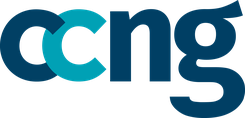It’s important to use your network to get a more complete view of issues, problems and solutions. Experience is generally the key in successfully navigating difficult situations. A wide network of informed, experienced contacts gives you access to new and valuable information. Here are four ways to expand your view:
-
Use your professional network to expand your vision beyond your immediate market and specific industry. The opportunity to connect, share, and learn with professionals supporting different audiences and utilizing different approaches is extremely valuable. A cross-industry network gives you access to a diverse set of perspectives and insights, and colleagues who can offer new strategies and ideas.
-
A strong professional network should provide a rich ecosystem of knowledge and experience. To get the full picture you should include a full spectrum of resources and insights embracing colleagues, consultants, thought leaders, service providers, analysts, associations, friends and peer groups. Each brings valuable resources to the network through its individual contacts and affiliations. Remember, it takes multiple perspectives to create a 360-degree view, and everyone has something to contribute.
-
Seek diversity to build a dynamic network that embraces a broad spectrum of people and perspectives. Age, experience, industries, gender, culture, and ethnic background all contribute to the range and richness of the ideas in your network. Diversity enables us to consider perspectives and possibilities that might otherwise be missed. A fresh perspective from an alternative point of view can offer new insight on an old problem. As my old mentor used to say, “If you and I always have the same ideas and answers, then one of us is redundant.”
-
And, remember to think globally. Collaboration and success increasingly involves resources that are in the office, @home, and international. Colleagues and teams are scattered across countries, time zones, and cultures. Leading a global team requires increased sensitivity to, and understanding of your own cultural biases and preferences, as well as those of your dispersed team members. A peer network of informed, international contacts can provide broader access to new and valuable information.
Check back next week for more ways you can build a truly powerful professional network. For a complete list of all 24 best practices you can use this link for a copy of the full white paper. You’ll get a pdf you can save and share, and immediate access to the content online.
Lon Hendrickson is the Executive Director of the CCNG Magnet Program.



